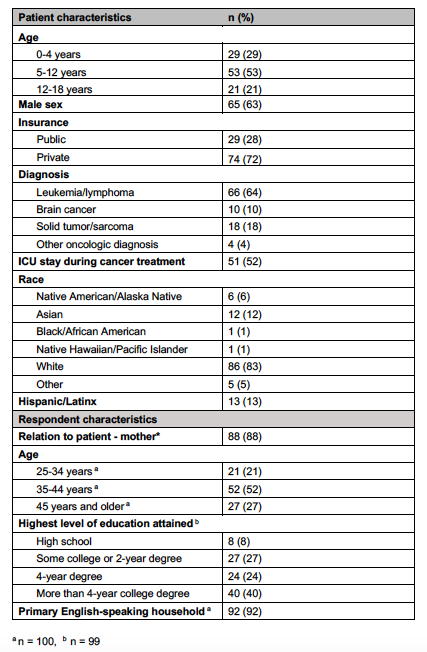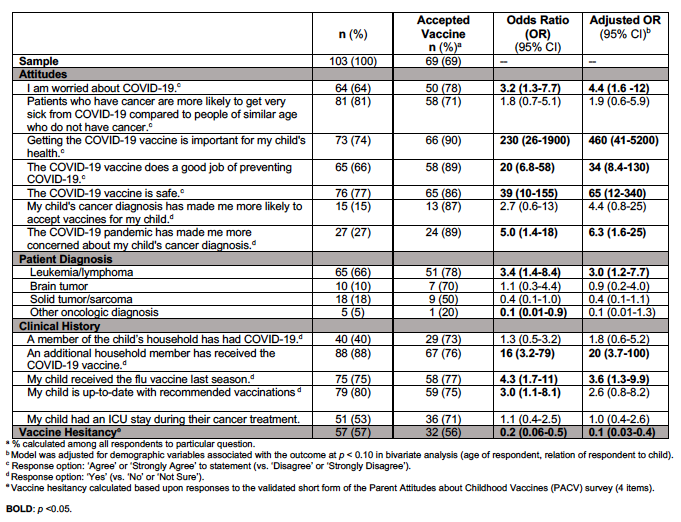Immunizations/Delivery
Session: Immunizations/Delivery 1
32 - Perceptions of COVID-19 vaccination among caregivers of pediatric oncology patients
Saturday, May 4, 2024
3:30 PM - 6:00 PM ET
Poster Number: 32
Publication Number: 32.1628
Publication Number: 32.1628

Alastair Murray, MD (he/him/his)
Fellow
University of Washington/Seattle Children's
Seattle, Washington, United States
Presenting Author(s)
Background: Pediatric cancer patients are at increased risk for COVID-19 infection and related complications. COVID-19 vaccination is strongly recommended for these patients, yet little is known about vaccine perceptions in this population.
Objective: This study examines caregiver perceptions related to COVID-19 vaccination of their child with cancer.
Design/Methods: In this cross-sectional survey study, English and Spanish-speaking caregivers were eligible to participate if their child ( < 18 years) had a cancer diagnosis and received care at Seattle Children’s Hospital (June 2018-May 2021). Caregivers were recruited via email or regular mail to complete an online REDCap survey (March-June 2022). The survey addressed COVID-related knowledge, attitudes and experiences. Vaccine hesitancy was identified using the validated short form of the Parent Attitudes about Childhood Vaccines survey. Caregiver responses were linked with their child’s electronic health record (EHR) data. The primary outcome was COVID-19 vaccine acceptance, defined as COVID-19 vaccine receipt (EHR-documented or caregiver-reported) or vaccine intention (if child ineligible). Survey responses and EHR data were summarized using descriptive statistics. Associations between survey responses and clinical data with COVID-19 vaccine acceptance were analyzed using multivariable logistic regression.
Results: Of 441 eligible caregivers, 103 (23%) completed the survey (Table 1). Overall, 69% of caregivers accepted COVID-19 vaccine for their child with cancer; 57% were vaccine hesitant. Top reasons caregivers gave for vaccine acceptance were protection (68%) and return to normalcy (60%) and for vaccine declination were concerns about newness (59%) and safety (44%). In multivariable analysis, caregiver agreement that COVID-19 vaccination was important for their child’s health was strongly associated with vaccine acceptance (90% vs. 4%, p< 0.001) (Table 2). Vaccine hesitancy was negatively associated with acceptance (56% vs. 88%, p< 0.001). Over half (56%) of hesitant caregivers accepted vaccine for their child. Receipt of flu vaccine in the past season was also a predictor of COVID-19 vaccine acceptance (75%, AOR: 3.6, 95% CI: 1.3-9.9).
Conclusion(s): This survey describes COVID-19 vaccine perceptions and decision-making among caregivers of pediatric cancer patients. Though vaccine hesitancy score identified nearly all caregivers who declined the vaccine, many hesitant caregivers accepted the vaccine. Although caregivers of pediatric cancer patients may express hesitancy, they may accept COVID-19 vaccination for their child.


